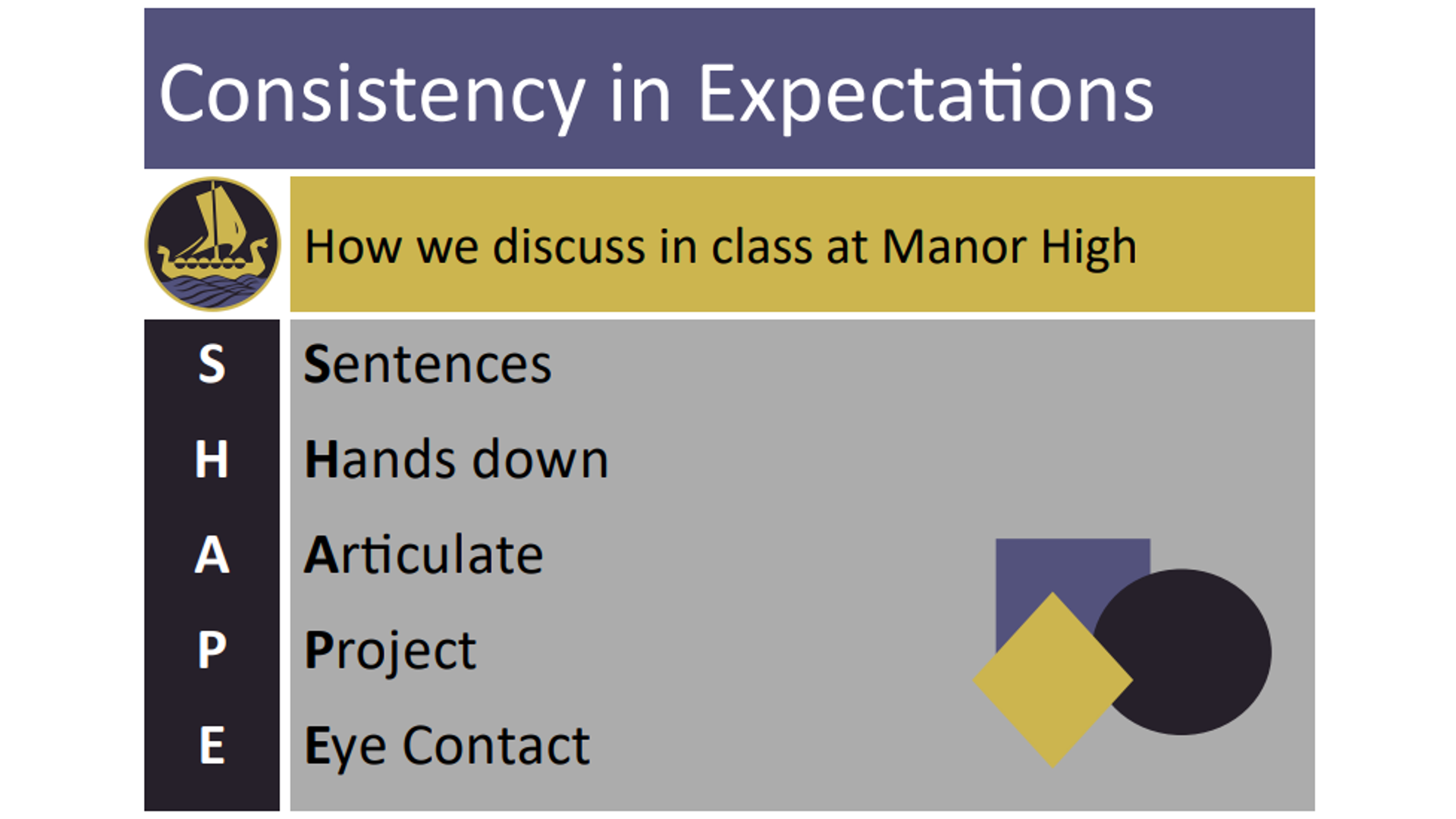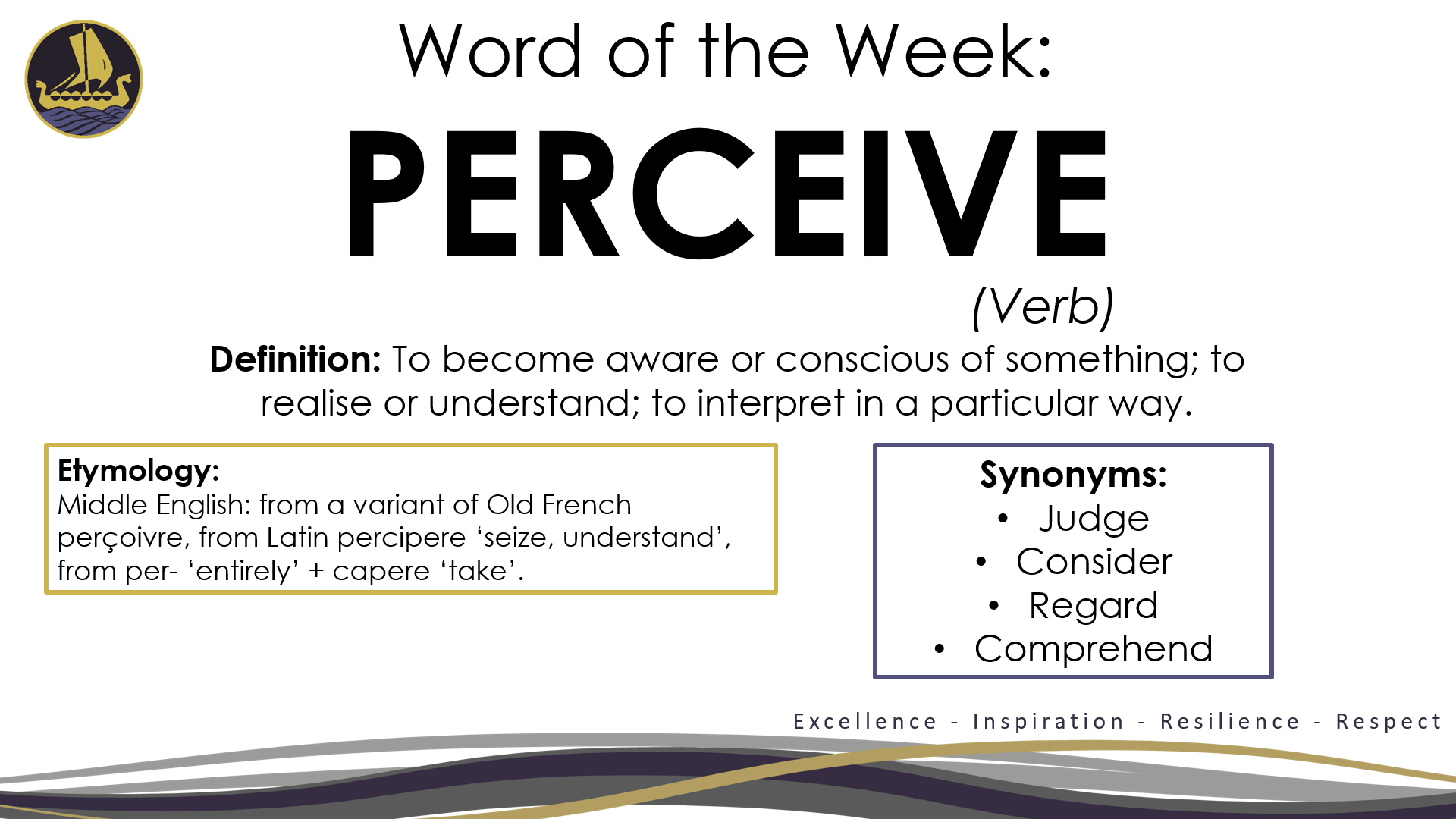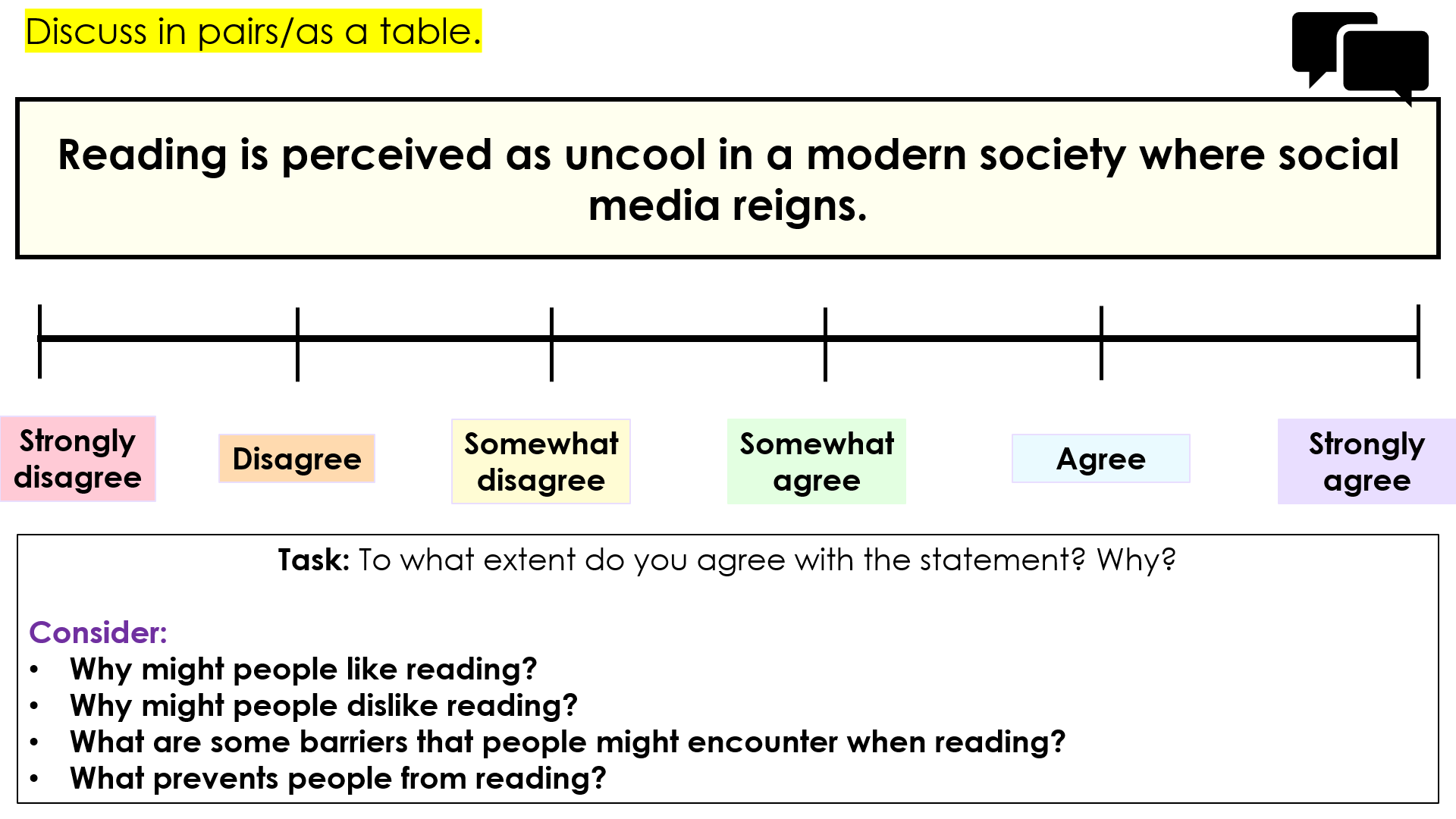Literacy
Literacy is the ability to read, write, speak and listen in a way that lets us communicate effectively and make sense of the world (National Literacy Trust). One of our key values at Manor High School is excellence, and literacy is no exception to this. Not only is good literacy vital for academic success, but is imperative for their lives beyond school. Below are some ways in which we are raising the profile and standard of literacy.
Reading:
Here at Manor High School, we are working hard to cultivate a culture of reading for pleasure as well as academic success. Research tells us that reading helps to improve a child’s empathy skills (Oatly, 2016) as well as improving vocabulary in comparison to non-readers and enhancing performance in subjects other than English (Millennium Cohort Study). Students are able to access the Study Centre at break and lunch times, providing them with a space to read outside of lesson times. They can also use this time to try new books and swap books where necessary. There is a plethora of texts available for students, including fiction, non-fiction and graphic novels. Students are also welcome to bring any books that they have at home to read during break and lunch, too.
At KS3 students have a timetabled 50 minute Accelerated Reader slot during an English lesson. This is time dedicated to reading and quizzing on books that they have completed. Accelerated Reader is a programme we use at Manor High School, in which students take an initial ‘STAR’ test to determine their reading age. This will then determine a colour and students are free to pick a book within this range. This ensures that the content of their chosen book is challenging, whilst still being appropriate for their reading age allowing for comprehension of the text. It is expected that students read a minimum of two books per half-term and take a quiz on this, passing with 80% or higher. The quiz allows us to make sure that the student is comprehending what is being read as well as allowing the teacher to determine if a particular colour is challenging enough.
In addition to this, we also run the Tutor Time Reading Program. This is implemented across houses, with each tutor group reading twice a week. There are a selection of four books (see below for current texts) which are rotated throughout the academic year to expose students to different books, perhaps even some which they would have never thought to pick up themselves. The Faster Reading Study conducted by University of Sussex suggests students can make 16 months of reading progress in 12 weeks, which is the approximate length of a term. By implementing the Tutor Time Reading Program, we have found that students in all houses are making progress, with ages raising by 19 months collectively in one form group alone. The most progress for each house is below:
|
B6 – Ghost Boys |
C7 – The Alchemist |
K4 – I am Malala |
W3 – Cane Warriors |
|
+10 months |
+15 months |
+14 months |
+19 months |
We have also found that the average reading age in years 7-9 has increased, as below:
|
|
Year 7 |
Year 8 |
Year 9 |
|
Average Age Autumn 22 |
11.08 |
12.08 |
13.3 |
|
Average Age Spring 23 |
12.02 |
13.03 |
13.6 |
*Note: As Year 10 do not have Accelerated Reader slots, their reading ages are not included in this data set.
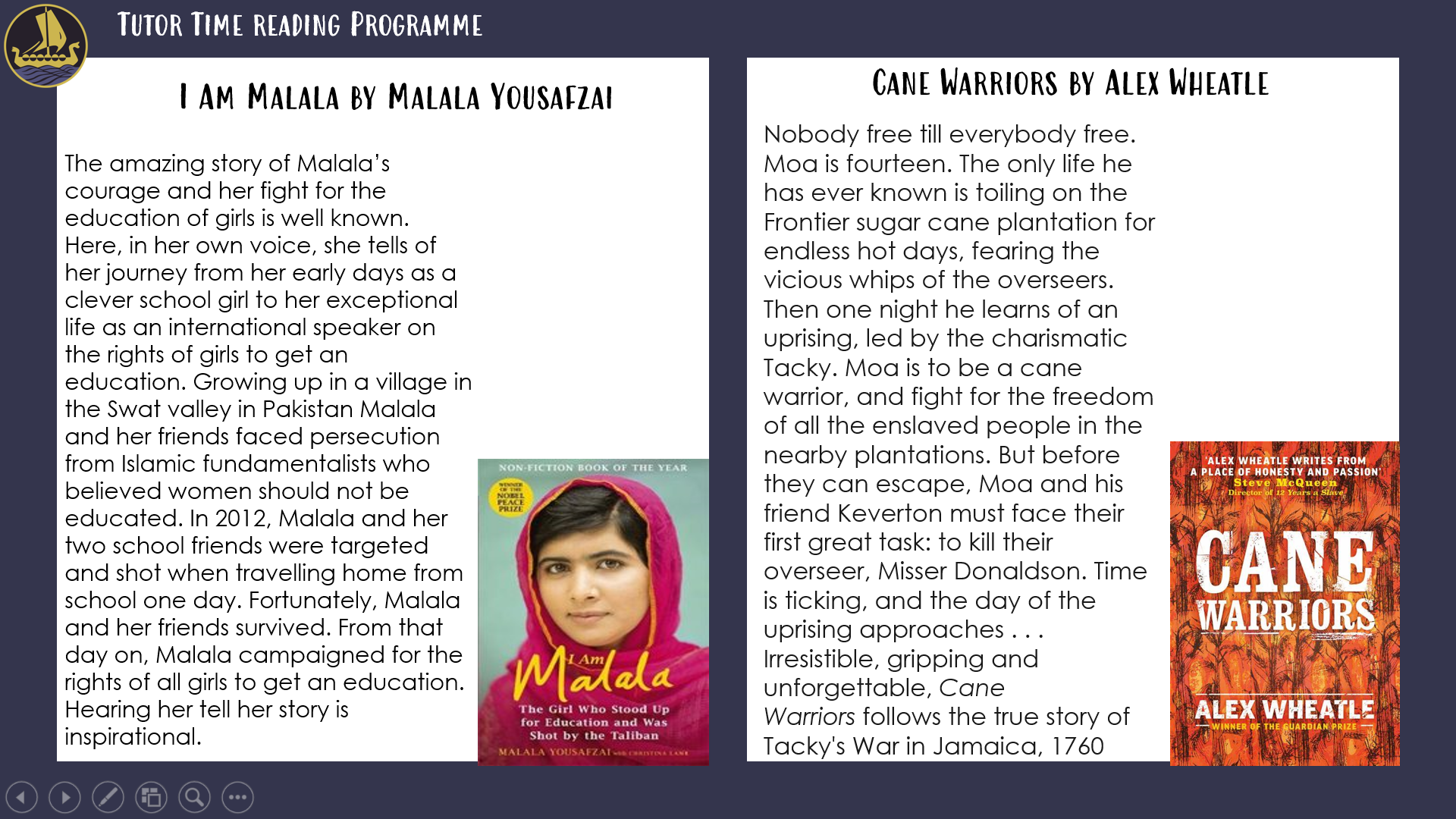
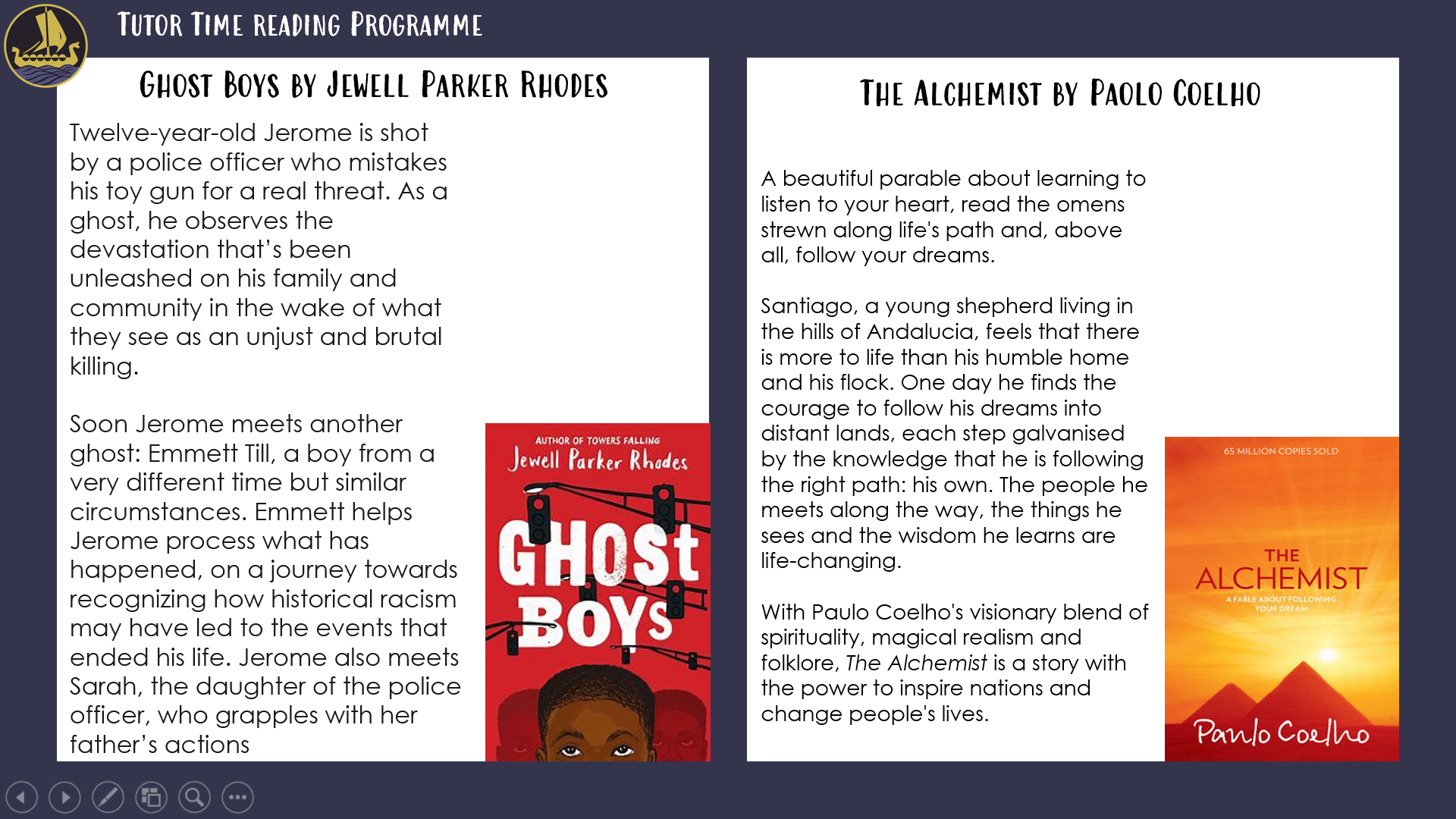
Writing:
Throughout every student’s time at Manor High School we look to promote excellence in all aspects of academic and personal success. The ability to write well and accurately is no exception to this. Teachers work hard to place an emphasis on literacy across the whole curriculum and ensure students are technically accurate in their written expression. Each week we have a different literacy focus to ensure that we are being specific when marking across the whole curriculum. This allows us to hone in and provides a manageable target. Moving forward we will be trialling some new strategies across the curriculum to enhance students’ written communication, particularly through implementation of The Writing Revolution and methods such as ‘writing sprints’ developed by expert Alex Quigley.
Oracy:
We are boosting our students’ ability to communicate with the world around them by placing emphasis on oracy. Oracy is a process in which students learn through talk and deepen their understanding through dialogue with teachers and peers. We have specific expectations regarding how students should communicate with talk by ensuring that we follow ‘SHAPE’ (see below for graphic). By following these expectations, we support students’ ability to talk as is expected in the wider world, prioritising clarity, precision and articulation. The research tells us that ‘good literacy floats on a sea of talk’ (Britton, 1970), and ‘if they can say it, they can write it’ (Didau, 2014). With this in mind we embed constructive talking time into lessons, allowing students to practice speaking and encouraging them to share ideas with the class. Each week we also have a Talking Point which is discussed during tutor time. These are statements linked to that week’s assembly or current affairs, designed to spark debate and conversation, which take place in a structured manner allowing students to express their ideas in a safe environment. This also helps to build on our core values of excellence and respect during this time. We then support this through Word of The Week which widens students’ tier 2 vocabulary (words that are less frequent in daily speech, but not specific to one subject, such as ‘fluctuate’, ‘assiduous’, ‘civility’ and ‘perceive’). An example of a Talking Point with Word of the Week are below, for your reference.
